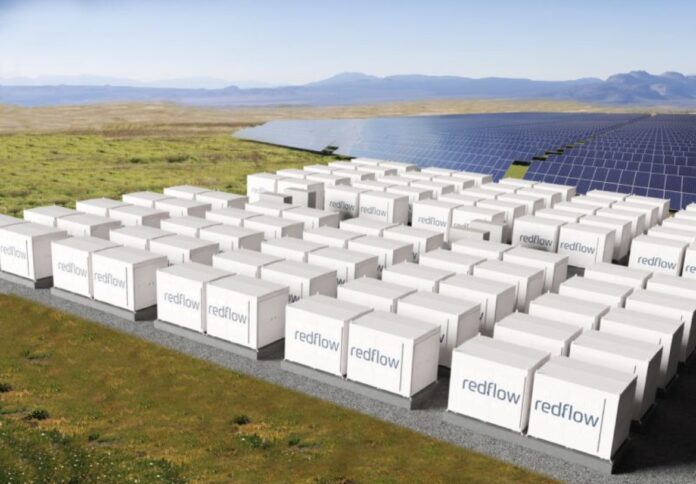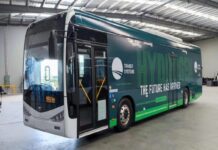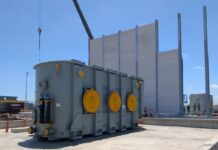
Brisbane-based battery manufacturer Redflow announced that the California Energy Commission (CEC) has approved the use of its safe, scalable, and sustainable flow batteries in a sizable solar and storage project.
The Paskenta Band of Nomlaki Indians, a federally recognised sovereign Native American nation in Northern California, will receive electricity as a result of the project, the company revealed in an ASX announcement.
The 20 MWh long-duration energy storage and 5 MW solar installation that makes up the Paskenta Rancheria Microgrid Project are both situated close to Corning, California.
When completed, the approved 20 MWh system will be one of the world’s largest zinc-based battery projects, as well as Redflow’s largest single sale and deployment of batteries globally to date.
As part of the Project, Redflow will provide the 2,000 ZBM3 batteries for its 200 kWh modular energy pods, oversee installation, and help with commissioning and maintenance. Pod shipments are planned to begin in the latter part of 2023 and early 2024.
For the 20 MWh system, Redflow anticipates receiving about USD 12 million (AUD 18.5 million), which will be paid over time based on project start-up, battery delivery, and completion milestones.
The ASX-listed company said the majority of the fee must be paid at or before the time the battery delivery is complete.
Chief Executive Officer and Managing Director Tim Harris commented on the project for Redflow and said it is one of many large-scale opportunities in the company’s pipeline and the next phase of our growth strategy.
“The market for long-duration energy storage solutions is rapidly accelerating, and this project will firmly establish Redflow’s presence in California, which is leading the development and support of non-lithium technologies to achieve its net-zero goals,” Harris said.
The CEO added that the recent Climate, Critical Minerals and Clean Energy Transformation Compact, which designates clean energy as the third pillar of the alliance, support the objectives of the initiative and serves as a great illustration of US-Australian cooperation in renewable energy.
Jonah Steinbuck, director of the Energy Research and Development Division at the CEC, highlighted the project’s importance in California’s clean energy transition.
“It reflects the CEC’s goal to commercialise proven long-duration energy storage solutions and support the energy sovereignty of tribal nations such as the Paskenta Band of Nomlaki Indians,” Steinbuck remarked.
“With emerging energy storage technologies such as those developed and deployed by Redflow and Faraday, we will be better positioned to expand and diversify California’s energy storage portfolio, reduce reliance on fossil fuels, and enhance the reliability and resilience of our grid,” the director noted.
Redflow said the batteries will be manufactured at Thailand’s ISO9001-certified plant.



















